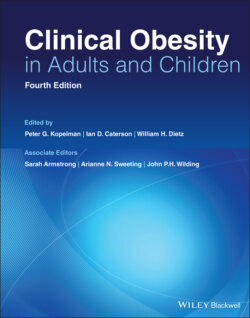Читать книгу Clinical Obesity in Adults and Children - Группа авторов - Страница 120
Conclusions
ОглавлениеThe fundamental biological drivers of dietary intake are no different in humans than other species, from insects in laboratory studies to wild primates in natural ecologies. Humans differ, however, in being the only species facing a dietary crisis of its own making. The root cause is that our evolved biological appetites have found expression via cultural means including science, technology, and economics, which have driven transitions towards food environments with which that biology is incompatible. A particularly relevant dimension of this transition is the emergence of corporate agency and its progressive empowerment through transnationalization. Interdisciplinary perspectives are essential for understanding this process and even more so for managing it. There are many productive contact points between the sciences of ecology and public health that can help facilitate progress towards a solution. Ecological perspectives can illuminate human biology through insights from species that are not complicated by the culture‐driven transformations with which humans have become inextricably intertwined. Ecology can also dispel the perception that the engineering prowess that provided the tools on which the food industry and its globalization are predicated is up to the task of managing the nutrition transitions they have facilitated. For that, a different paradigm is needed, which respects that, like any other species, we live in an ecology that assumes emergent properties not inherent in any of the components, whether that be individuals, corporations, or governments. Complexity theory can provide the tools for conceptualizing this situation and the potential for managing it through identifying key control points. Ironically, a complex systems approach might succeed where other approaches have failed by demonstrating the problem is simpler than assumed. Even though humans and corporations are immensely complex systems, the primary drivers of nutrition transitions are deceptively simple: biological appetites for nutrients and the corporate appetite for profit. Protein leverage is a simple model that can illuminate how these appetites have interacted to generate an obesity epidemic. The challenge ahead is to use this information to formulate solutions.
